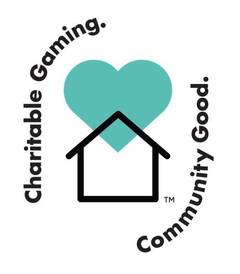BIRTH
Bulletin Announcement
Share your celebrations with our Beth Sholom Family! A new addition, first time Bubbie or great grand-Bubbie, we’d love to celebrate with you.
Seudah Mitzvah
We're here to ensure your simhah is a beautiful and memorable event. Contact the synagogue office at (416) 783-6103 to inquire about our facility, catering and rental policies.
Mazel Tov! It's a Boy!
A brit milah (bris, or circumcision) is the ritual through which a Jewish baby boy enters the covenant of the Jewish people. It should take place on the eighth day of the boy’s life, unless there are medical reasons for postponing. It is traditionally performed following the morning service.
After you have contacted and arranged your Mohel, contact the synagogue office at (416) 783-6103, to arrange the venue and the seudah mitzvah (commanded meal) that follows. If there are less than 50 people attending, you can sponsor the morning minyan or Shabbat congregational Kiddush with our in-house caterer, or you can arrange for a larger group or catered lunch. We are pleased to offer special incentives for prospective members who are having their son’s bris at Beth Sholom.
The ceremony of Pidyon Ha-Ben applies to the son of parents who are neither Kohen nor Levi, and when the baby is the mother’s first conception and born by vaginal delivery. The boy is redeemed on the 31st day of birth unless that day falls on a Shabbat or festival, in which case it is postponed one day.To determine if a Pidyon Ha-Ben is required, please contact a member of our clergy immediately after the brit milah. The synagogue would be happy to assist in this wonderful observance.
Mazel Tov! It's a Girl!
A baby naming ceremony is a joyous event when the community welcomes a Jewish daughter into the community of Israel. A baby naming may take place during any Torah reading service — typically on Monday, Thursday, Shabbat, Rosh Chodesh and Jewish holidays. At Beth Sholom, only members may have their baby naming on Shabbat and holidays; non-members may have their baby naming on weekday mornings.
Contact our synagogue office at (416) 783-6103, to arrange the venue and the seudah mitzvah (commanded meal) that follows. If there are less than 50 people attending, you can sponsor the morning minyan or Shabbat congregational Kiddush with our in-house caterer, or you can arrange for a larger group or catered lunch. We are pleased to offer special incentives for prospective members who are having their daughter's baby naming at Beth Sholom.
From Rabbi Flanzraich
The birth of a child has always been a cause for celebration in Judaism. Learn more about the traditions surrounding the Brit Milah, Simhat Bat and Pidyon HaBen here.
Brit Milah - Circumcision
The ceremony of circumcision, by which a boy enters the Covenant of Israel on his eighth day of life, goes back to the time and life of Avraham, who was commanded by God to circumcise himself, his son Ishmael, and all the males in his household, as a sign of this newly existent covenant between Him and Avraham (Genesis, chapter 17). Since then, Jews have circumcised their sons, often risking grave danger. Circumcision has played an important role in Jewish identity and culture for more than three millennia, and continues to do so today.
Circumcision is performed on the eighth day unless health considerations advise against it (in which case it is postponed until a physician gives permission) and is performed on Shabbat or Yom Kippur, indicating its supreme importance within Jewish tradition. While it is the parents who are actually commanded to circumcise their sons, few of them are qualified to perform this surgical procedure and appoint a mohel as their agent. It is traditional to schedule the brit milah as early in the day as possible, signifying one's eagerness to observe the mitzvah. The baby is brought into the room by the K'vaterim (escorts) who are usually a couple who has yet to have children. The boy is then placed on the lap of the sandek (godparent), who sits and holds the child in a chair that has been designated as Elijah's Chair.
There are two reasons for the custom of reserving a chair as Elijah's Chair. The first, our sages relate, is because one of Elijah's complaints against the Hebrews was that they had ceased circumcising their children; hence Jewish parents demonstrate to Elijah that they are fulfilling the covenant. The second reason is because tradition teaches that Elijah will return to earth to herald the coming of the messiah. When a baby is born, it is always possible that this child is the Messiah, and so he is welcomed by being held in Elijah's Chair.
Following the circumcision, the child's Hebrew name is announced. The connection between circumcision and naming also derives from the seventeenth chapter of Genesis, because after God forges the covenant of circumcision with Avram, God changes Avram's name to Avraham. Ashkenazic Jews generally name their children after deceased relatives. Sephardic Jews often name their children after living relatives.
Simchat Bat - Naming a Daughter
Jewish tradition celebrates the arrival of a baby girl by a ceremony of giving her a Jewish name. This takes place with recognizing the father being called for an aliyah to the Torah on either Shabbat morning, or a Monday or Thursday mornings which are the times we take the Torah out for public reading. Following the aliyah, parents and child come to the rabbi where the name when prayers are said for the child's and mother's health, and her name is announced publicly.
Pidyon HaBen - Redemption of the Firstborn
In B'Midbar (the Book of Numbers 18:15-16) we read:
"The first issue of the womb of every being, human or animal, that is offered to the Lord shall be yours [the priest's], but the firstborn of humans shall be redeemed, and the firstlings of unclean animals shall be redeemed. Take as their redemption price from the age of one month up, the money equivalent to five shekels by the sanctuary weight, which is twenty gerahs."
The Torah claims for God every firstborn, human and animal. The firstborn male of ancient Israelite families had special obligations since, from the day of birth, he was consecrated to the vocation of assisting the priests in the conduct of the sacrificial cult. Once the Tabernacle (Mishcan) was built, this duty was transferred to the Levites. Since that time, firstborn Jewish males have been released from their obligation through a ceremony called Pidyon HaBen.
Pidyon HaBen applies only to the firstborn male child of a Jewish woman who is delivered naturally, meaning that babies who are delivered by Caesarean-section do not have to be redeemed. If a woman's first child was delivered by C-section, and she subsequently gives birth to a son, the second born son does not have to be redeemed. Finally, the firstborn of Kohanim and Leviim are exempt, as are the firstborn of daughters of Kohanim and Leviim. The redemption ceremony takes place when the child is a full thirty days old, hence from the thirty-first day of life, unless that day falls on a Shabbat or festival, in which case it is postponed one day because the ceremony involves a monetary transaction.
Source: http://scheinerman.net/judaism/LifeCycle/birth.html
Approved Mohels
Beth Sholom maintains a list of approved Mohel's in the GTA. Please contact and arrange a Mohel before arranging your seudah Mitzvah at Beth Sholom.
|
Dr. Aubie Diamond |
|
|
Dr. Mark Greenberg |
4700 Jane Street, Suite 202, Toronto M3N 2L3
|
|
Dr. Aaron Jesin |
4256 Bathurst Street, Suite 203, Toronto M3H 5Y8
aaron@drjesin.com
|
|
Dr. Yehudi Peach Shields |
30 York Downs Drive, Toronto, Ontario, M3H 1J1
|
|
Dr. Label Zoberman |
2901 Lawrence Avenue East, Toronto M1P 2T3
|




